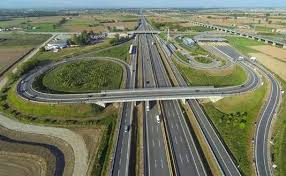
The 2030 World Cup is expected to leave a legacy of infrastructure in Morocco, which has already started building roads, expanding airports, upgrading hotels and resorts, improving internet networks and constructing stadiums.
Minister in charge of equipment Nizar Baraka said preparations for the World Cup will benefit at least 35 cities across the Kingdom.
Morocco won the bid to co-organize the tournament together with Spain and Portugal and has picked the six cities of Casablanca, Rabat, Tangier, Fez, Marrakech and Agadir as venues for matches.
Many smaller towns adjacent to the World Cup venues will see their roads expanded or upgraded to facilitate mobility, Baraka said.
Morocco plans to double its airport capacity to 80 million passengers as works are ongoing in its main airports.
The World Cup has also been a catalyst for the development of Morocco’s tourist sector, with arrivals in the first ten months this year at 16 million, surpassing last year. By 2030, Morocco expects to receive 26 million tourists.
Hence the need for upgrading the hospitality industry in the country. The government has since 2020, offered aid to operators to upgrade their hotels and build new ones.
In terms of networks, Morocco plans to launch the 5G network, with the aim of extending the service to 70% of the population by 2030.
Morocco has also promised to invest up to 500 million dollars to build the Hassan II stadium near Casablanca and upgrade all the other stadiums that will host the World Cup.
